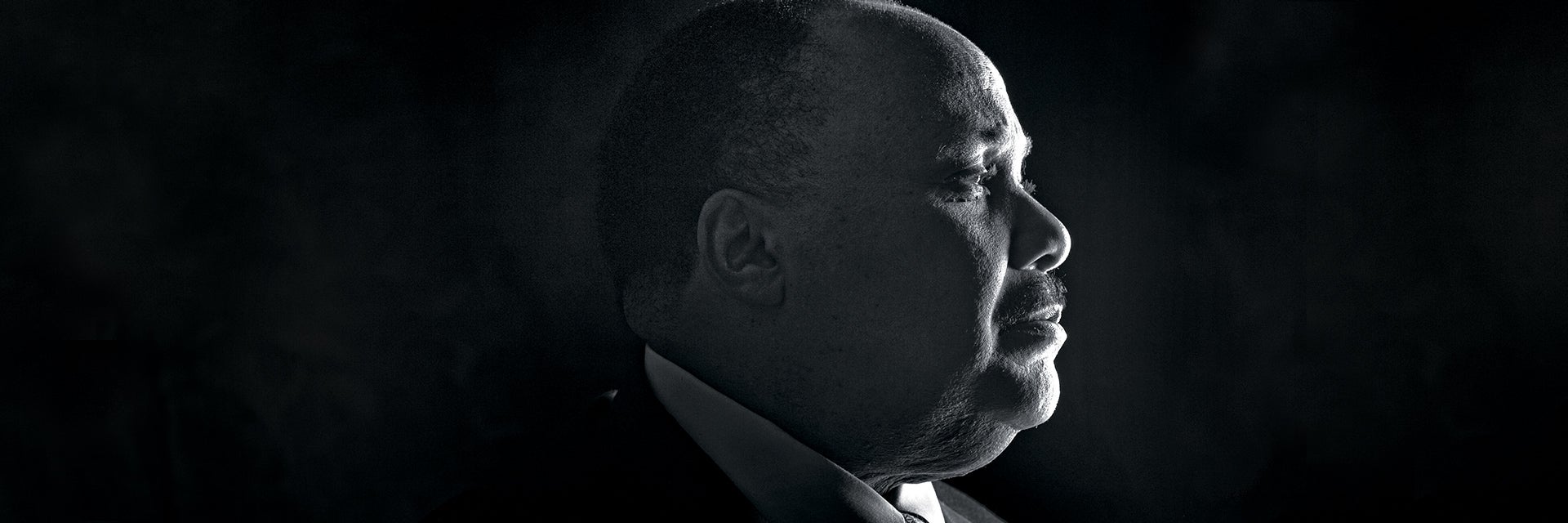It seems as if we are further removed than we have ever been from “the Dream” envisioned by Dr. Martin Luther King, Jr., the transformative leader who demanded civil rights for all, in every facet of life, as part of his fight against racism, poverty and violence. Five decades later, the current president is perhaps the most contentious chief executive of our lifetime, his administration rocked by scandal—from children separated from their families and locked in overcrowded, unsanitary cages to the 2019 impeachment inquiry, in which he has been accused of attempting to withhold military aid to Ukraine unless that country investigated his political rival Joe Biden.
Rarely a day goes by that we are not plagued by video showing police violence against Black people for the slightest of perceived offenses—incidents in which those who get out alive are considered lucky. Meanwhile, the gap between rich and poor is getting wider as the middle class shrinks. Across racial lines, the statistics are even more bleak, with the median wealth among White families now at 41 times more than their Black counterparts.
Gun reform also remains a hotbutton issue in a country that averages more than one mass shooting per day and in which there were 45 shootings resulting in death or injury on school grounds in the first 46 weeks of 2019. As our children undergo massshooting drills as a frightening new routine, no real action has come down from legislators to curb this crisis. “My father often said, ‘The house is on fire, and we’ve got to find a way to put that fire out,’ ” says Martin Luther King III. “We are at a greater divide than we’ve ever been.
If we can master a year, then certainly we can master a lifetime of peace as God’s highest creation.”
—MARTIN LUTHER KING III, ACTIVIST
If he arrived today and saw the chaos and heard the discourse, he would be greatly disappointed in the way that we as a society are responding to our fellow human beings, to our children. He’d be very concerned, I believe, about the policies that are insensitive to immigrants and the destructive actions that befall members of the African-American community who have been gunned down, often as a result of the improper conduct of police.”
And there is so much more that would weigh heavily on the slain leader’s heart. “My father would be very concerned about the environment,” his son continues. “He’d be disappointed that we have hundreds of thousands and maybe even millions of people who are living out on the streets in the wealthiest nation on the planet. He’d be greatly disappointed because he would know that we can, and we must, do better.”
The younger King believes that the key to protecting and lifting each other up goes back to one of the tenets on which his father stood: nonviolence. “Dad used to say humankind must learn nonviolence or face nonexistence,” he says. “It feels right now as if we could be critically close to that position of selfdestruction. As human beings, we are God’s highest creation.
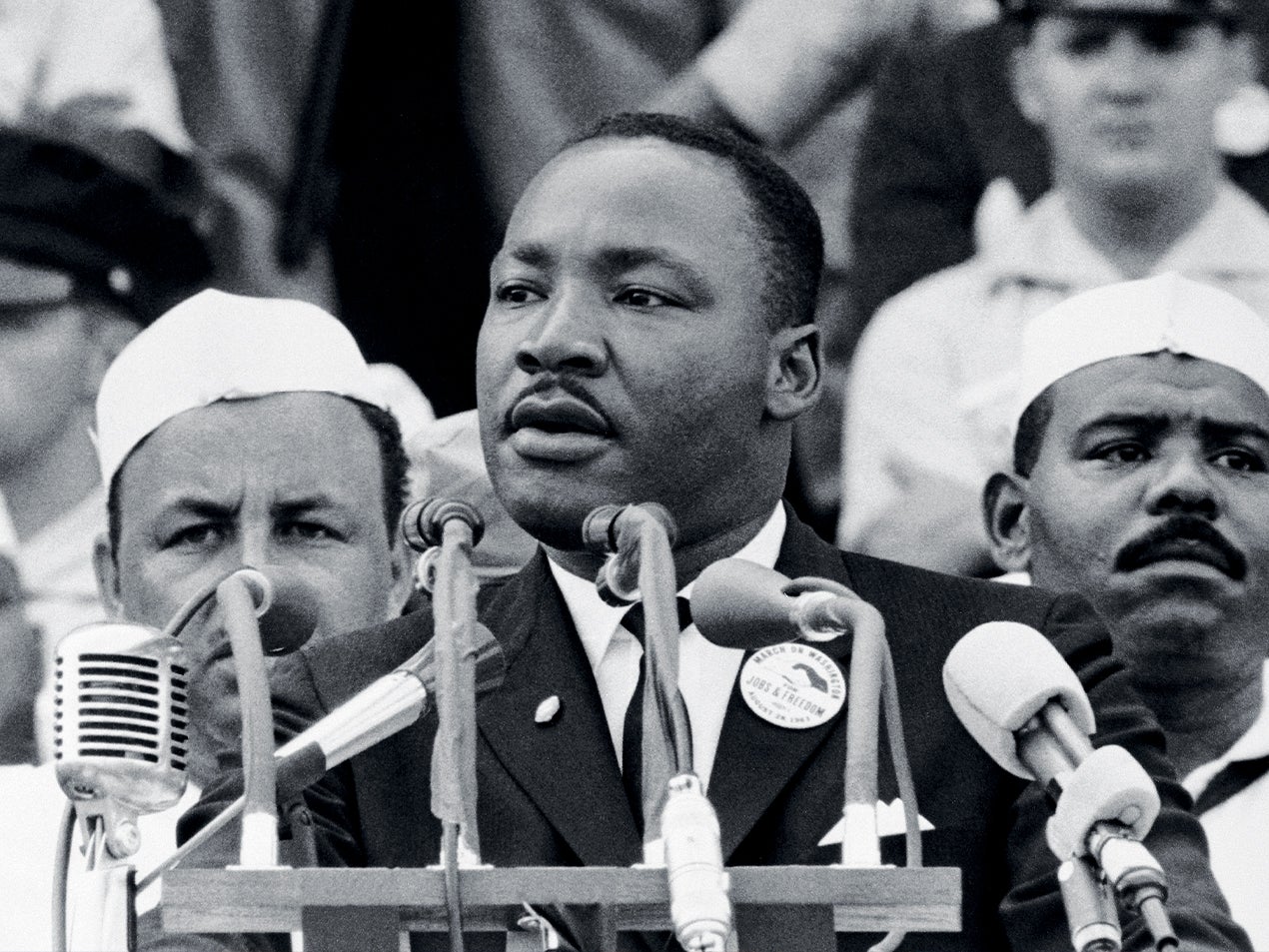
We have an obligation to respond in a different way, but you have to create that climate so that people will respond in a different way.” Indeed, Dr. King’s legacy was all about creating a climate in which to pursue our highest good and enable social change. As surely as he called for peaceful protest and nonviolence, he was a revolutionary, yet his radical activism has since been sanitized and watered down. People often forget about Dr. King calling out White moderates and blasting police brutality.
“People don’t remember the revolutionary Martin Luther King, Jr.,” his son reflects. “After 1965, he was talking about basic human rights, and he criticized the war in Vietnam and the immorality of it. I mean, he was enemy number one in this country. The methodology that he used was not just passive.
Nonviolence is really not about passivity.” King points out that “some of the issues we’re dealing with in this moment, my father forecasted 50 or 60 years ago. He was talking about a living wage. In 1967, that was a revolutionary concept. That’s probably what got him killed, in fact—when he started talking about a radical redistribution of the wealth of our nation and when he talked about a revolution of values and insisted that we have a moral responsibility to treat every human being with dignity and respect.”
So even though we face the difficulties of today and tomorrow, I still have a Dream.
—DR. MARTIN LUTHER KING, JR.
It is this flame that King tries to keep burning within his own family, while attempting to ensure that his father’s revolutionary vision is no longer reduced to hollow platitudes. At only 9 years old, his daughter has already taken up the mantle. Last year, in a riveting national appearance, Yolanda Renee King took the stage to speak out against gun violence at the March for Our Lives rally in Washington, D.C. Pleading for a gun-free society alongside hundreds of thousands of her peers who marched, she issued a peaceful yet galvanizing call to action.
“Dad wanted to eradicate from this nation poverty, racism, militarism and violence,” King says. “That quest is even more necessary now. That’s part of our responsibility, meaning myself, my wife, our daughter, everyone—to teach people what nonviolence really means and how to apply it to our society today; how to create a consciousness and understand that these revolutionary techniques can be used today.”
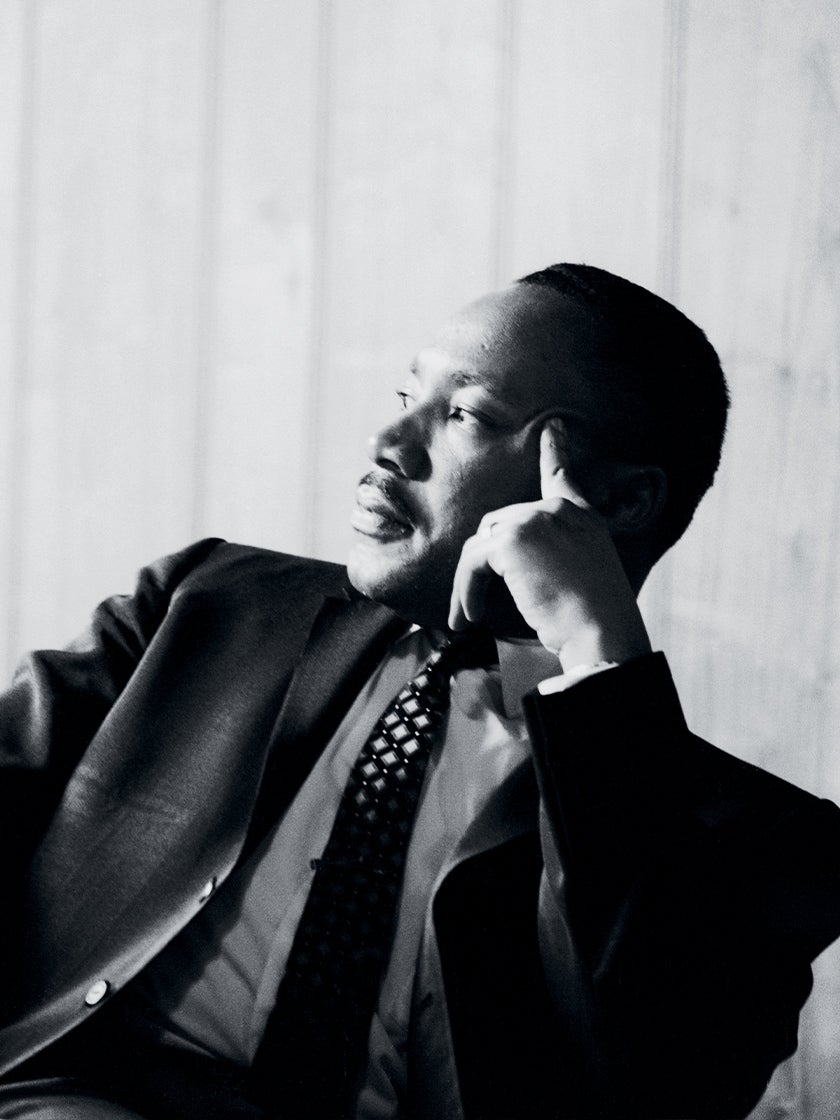
King envisions going into the school system with his family to train people in conflict resolution and the principles of nonviolence—to teach people how to coexist peacefully. “A disagreement does not have to result in my doing harm to someone else,” he explains. “Dad taught us how to disagree without being disagreeable, and that’s the kind of spirit that we really need today.”
King points out that his father met with every president of his era, regardless of the administration’s policies—a practice that the younger King himself honored when he went to meet with then president-elect Donald Trump to discuss voter suppression, yet one more social injustice that still needs to be addressed. He made a point of talking to the current president, despite his politics and policies, because, as he notes, a president should be engaged and given the opportunity to do the right thing.
“We have to be proactive in our leadership; I don’t think we do that enough,” he says. “We have a president who seems to be insensitive to many issues, and that president still needs to be challenged. He is supposed to be the president of the entire United States—not the president of the conservatives, not the president of the right wing, not the president of the neo-Nazis, but the president of every person within the United States of America.
“I think it’s always in order to engage in constructive dialogue, even when you may not get any results,” King adds. “And if you don’t get results, then you have to precipitate a nonviolent crisis, which is what Dad and his team did.” Now, as it was then, some of that King consciousness for generating constructive conversation and sounding a clarion call is being led by young people, not only across this nation but across the world.
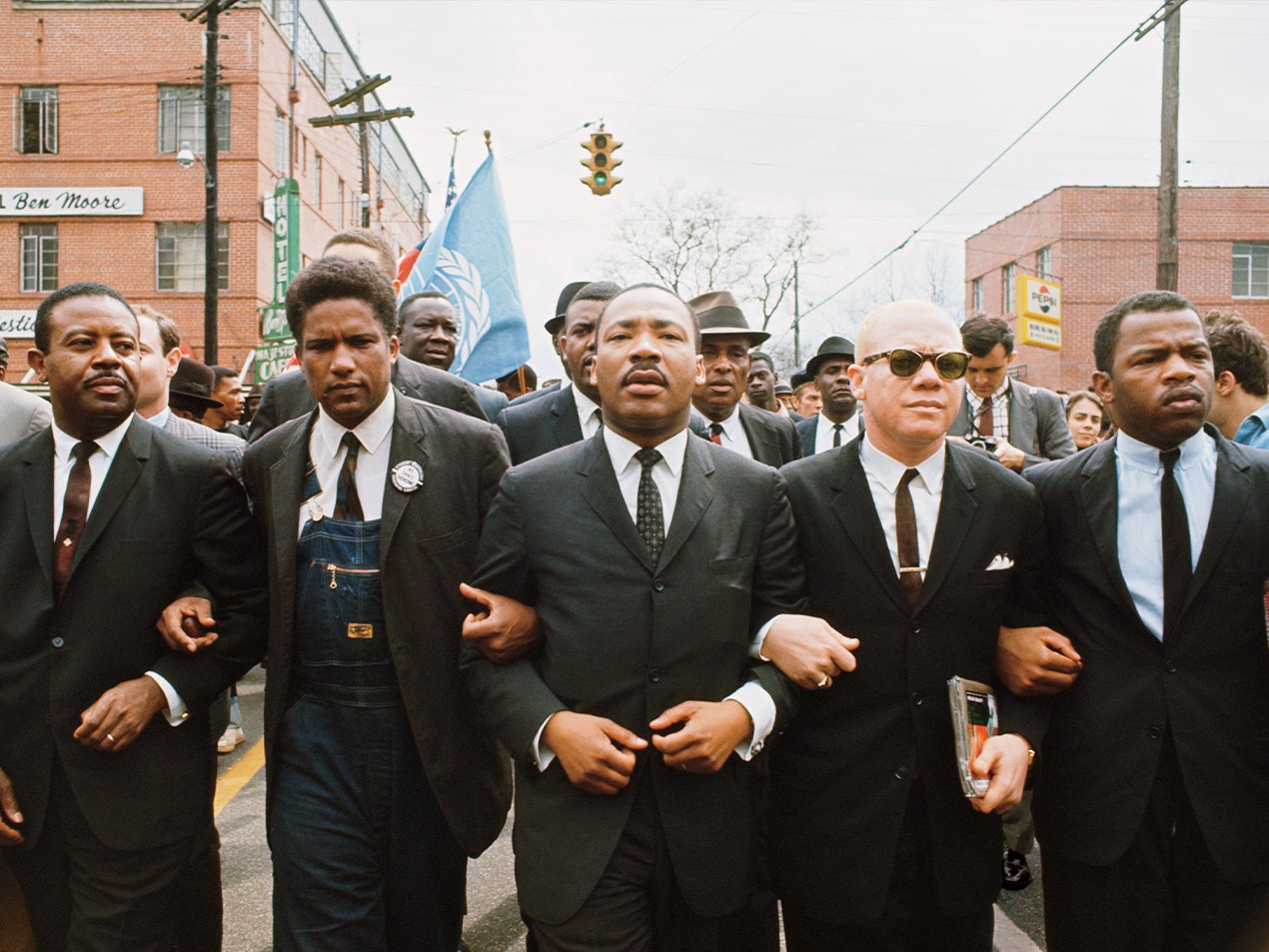
Dynamic youth are agitating and creating real avenues for change, even in the face of willful disregard from lawmakers. King gives a nod to the students in Parkland, Florida, who, after the horrific mass shooting on February 14, 2018, at Marjory Stoneman Douglas High School that left 17 people dead, lifted their voices against gun violence.
He also applauds climate activist Greta Thunberg, 17, who called out world leaders for robbing children of their future by their refusal to take action on climate change, and Pakistani activist and Nobel Peace Prize winner Malala Yousafzai, 22, who fights for the rights of women and girls to pursue and receive a formal education. “There is an emergence of young people who are not following, they’re leading,” King says. “We need a constructive camaraderie, and that means building coalitions. That means you’ve got to have young people like the Parkland students. That means you’ve got to have members of the African-American community from organizations like Black Lives Matter. That means you have to have the Me Too movement.
I believe when all of these individuals who are working for justice from different angles come together, that’s when we see change. “We saw the power of this kind of coalition building in the 2018 midterm elections,” he continues, “which is why the House now has a majority leadership from the Democratic side. Now we need an even larger, broader coalition of young people, of independents, of frustrated Republicans. We all have to come together to elect a different kind of leader who really is about bringing people together. I will never give up hope, but I don’t see in the current administration a leader who believes in trying to bring people together. It would take a miracle for that particular person to change. And since that’s not likely to happen, we’ve got to find a candidate who represents the best of us, who chooses to represent America and the interests of all Americans, not just one group of people who embody an air of destructiveness.”
His position has nothing to do with partisan politics, King emphasizes. Ideally, in his view, there would be a “real independent” party in the system, rather than just a binary option of Democrat and Republican parties. “The Democratic party has shown us that on issues like guns and the environment, they are willing to lead,” he says. “The Republican party runs from those issues. How can you run from climate change? How can you run from guns when you see people being destroyed?”
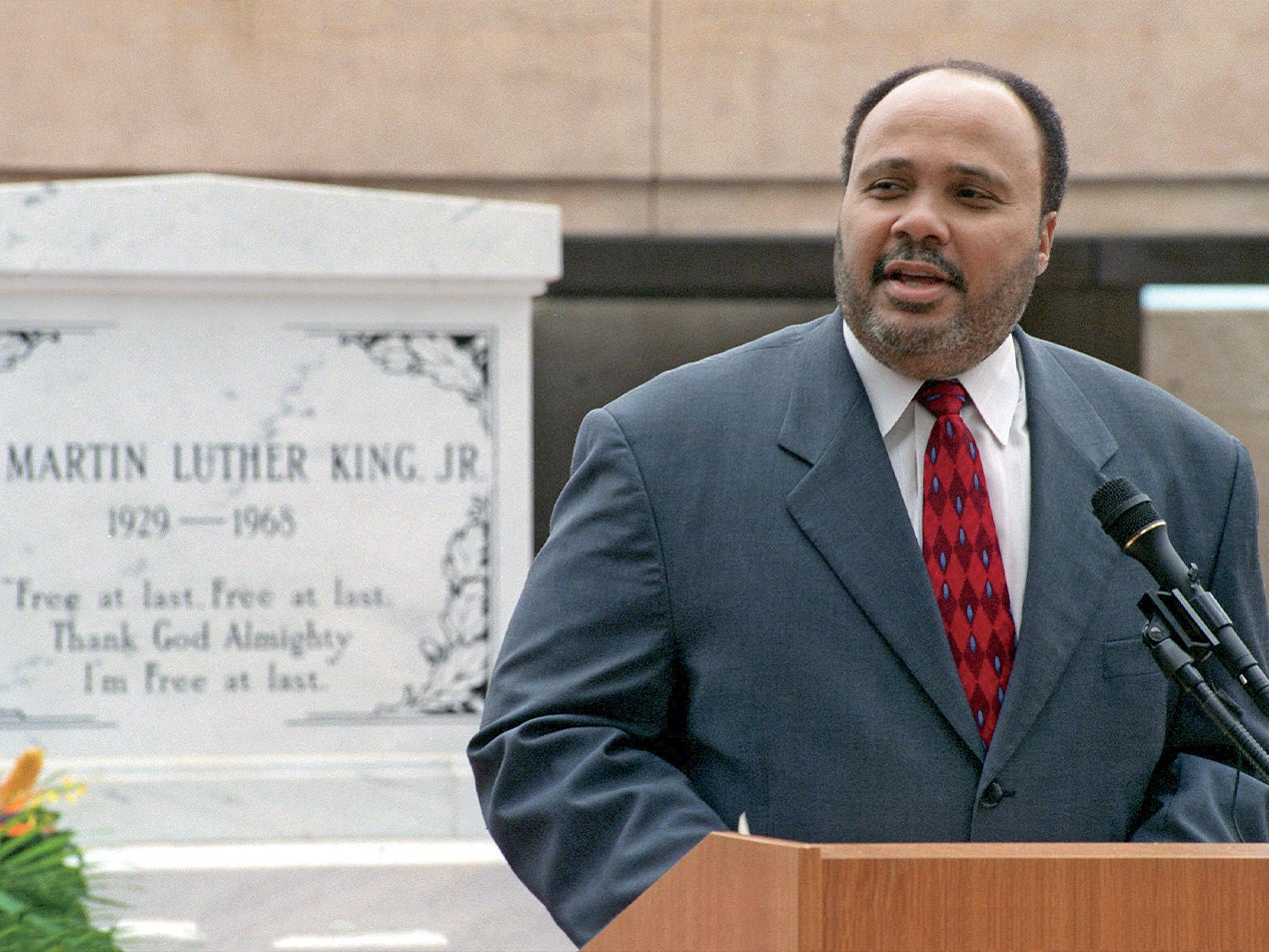
He adds that if there are Republicans willing to engage on these major issues, then they should be elected into office. “It’s not about being partisan,” he says. “It’s about doing what is right for our nation and what is right for our children and what is right for generations yet unborn.” King reminds us that there is at least one day every year when we are prompted, and can actively choose, to participate in his father’s dream of creating a better society for all. He is speaking, of course, about Martin Luther King, Jr., Day, a national holiday celebrated on the third Monday of January.
“If we’re truly talking about honoring my father, we can start this January,” he says. “If we can live a day in peace, then why couldn’t we live a week in peace? If we can master a week, why not a month? If we can master a month in peace, why not a year in peace? And if we can master a year, then certainly we can master a lifetime of peace as God’s highest creation. We have the capacity to do most anything. We’ve just not identified the will. When ability and will connect, it will yield phenomenal results. That’s what I believe we must do in the twenty-first century to finally realize the Dream that my father envisioned for our nation and world.”
